This post is part of the Global Moms Relay. Every time you share this post, Johnson & Johnson will donate $1 (per action), up to $300,000, to four causes helping improve the health and wellbeing of moms and kids worldwide: MAMA, Shot@Life, U.S. Fund for UNICEF and Girl Up. Scroll to the bottom to find out more.
The Global Moms Relay is a terrific opportunity to ask ourselves what kind of world we want for our families. The world that I dream of is rooted in the same core convictions that have been propelling UNICEF's work forward for decades: The belief that every child has a right to adequate nutrition, a decent education and quality health care. The belief that every child deserves to be safe, protected and loved.
In a perfect world, every child would have and would be all of these things. But that is not today's world. Millions of children still go without the most basic necessities. Millions of children still live in danger of violence and abuse. And so we keep striving together with our many partners to end the inequities and to give more and more children a fair shot at a bright, productive and happy future.
Year in and year out, we see progress -- living proof that our efforts are making a real difference and that our goals are possible. For example, there is 12-year-old Aklima of Bangladesh, who until recently spent her days scavenging for scrap paper and plastic at a garbage dump to help support her parents and six siblings. Today, Aklima works mornings but spends her afternoons advancing her education at a UNICEF-supported school. There is Zeinab Al Jusuf, 11, who fled Syria with her family when civil war broke out and has been out of school since but continues with her lessons via tablet computer in a UNICEF-supported space. And there is 9-year-old Joyce Maniratanga of Burundi, one of that country's many returning refugees. UNICEF has provided much-needed classroom materials, teacher training and other resources to help Burundi's schools accommodate the influx, maintain a nurturing environment and help students like Joyce make a smooth transition.
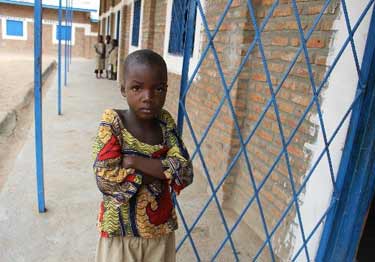
Joyce Maniratanga, 9, at the Gakora primary school in Rumonge Commune, Burundi, where she now attends second grade after returning with her family from Tanzania.
We've made significant gains in health care and nutrition as well. Programs that combat malnutrition are helping to reverse troubling trends in countries such as Malawi, where almost half of all children under five are stunted -- a condition that leads to a lifetime of poor health and lower productivity, with far-reaching socioeconomic consequences. We continue to fight the spread of preventable disease with immunizations, anti-malarial bed nets and other proven tools. Since Denis Atieno, 6, and his brother Wycliff, 5, of Kenya started sleeping under an insecticide-treated mosquito net, they have had more energy and are performing better in school.
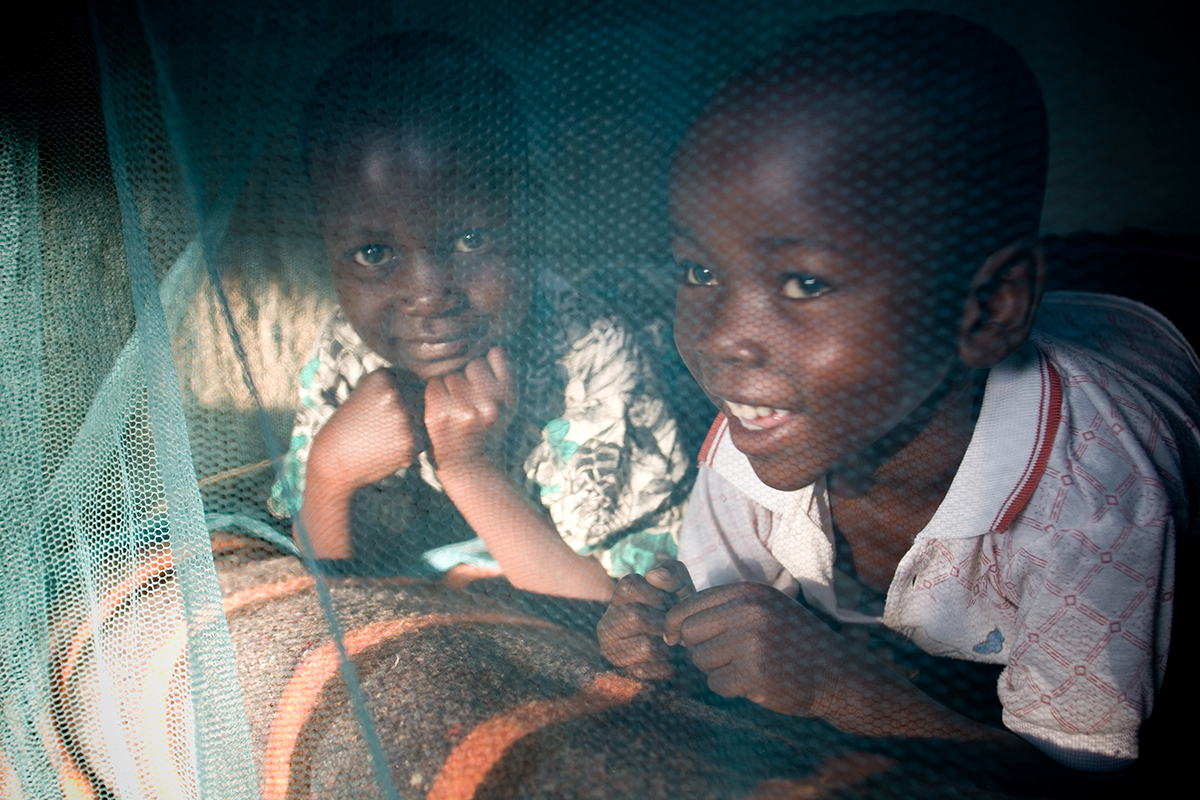
Denis (6) and his brother Wycliff (5) Atieno, sleeping under an insecticide-treated mosquito net.
We've also helped increase the odds that pregnant mothers will deliver healthy babies -- and keep them that way. Before Khin Saw, a 23-year-old mother in Myanmar, began participating in one of many breastfeeding and infant care and nutrition support groups that UNICEF backs, her children were weak and sickly; today they are healthy and strong. More and more women who are HIV-positive and expecting in Tanzania, South Africa and elsewhere have avoided transmitting the virus to their children thanks to new treatment programs.
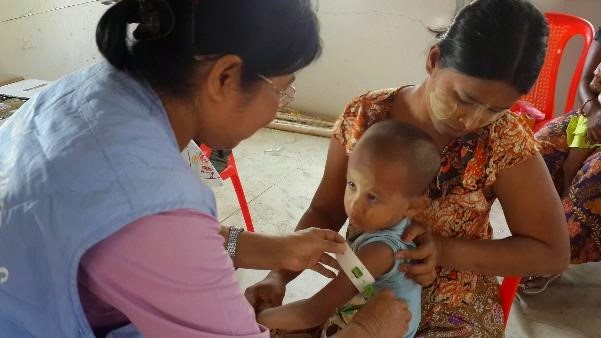
Khin Saw and her daughter breastfeeding.
When the Ebola crisis hit West Africa, UNICEF provided cleaning supplies, hand-washing stations and other equipment. Establishing new safety protocols helped pave the way for schools like St. Joseph's Secondary School in Freetown to reopen after an eight-month closure -- and for students like Alice Koroma, 13, to come out of isolation and resume learning and growing.
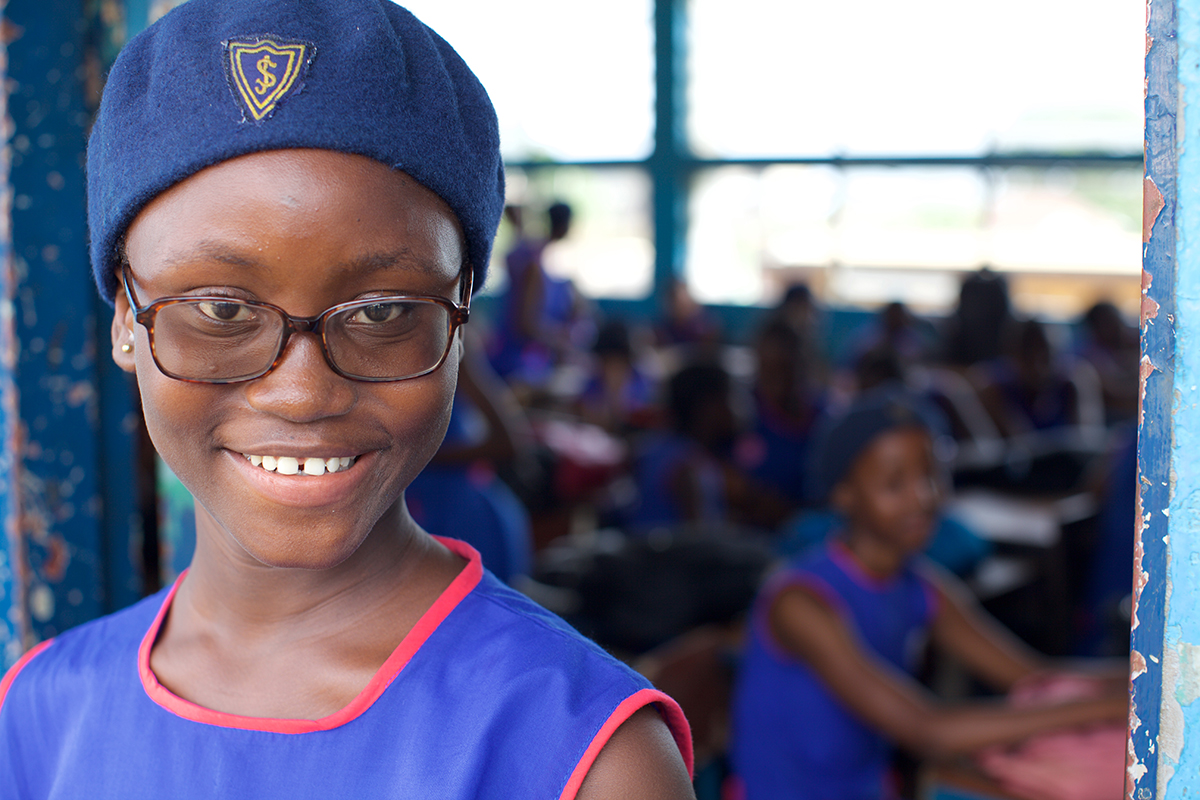
Alice Koroma at the reopened school in St. Joseph's Secondary School in Freetown after Ebola outbreak.
In a crisis, UNICEF services can often mean the difference between a child's life being temporarily disrupted or permanently derailed. In Yemen, escalating violence has kept children like 9-year-old Fuad Najib of San'a home from school and living in fear. Fuad wants to be an engineer when he grows up, but for now, the family's chief concern is making sure they have enough food and water. For months, UNICEF has been on the ground, providing assistance to address immediate needs as well as the support necessary to keep thousands of children like Fuad on track. In Nepal, which recently suffered the devastating effects of two major earthquakes, UNICEF has set up dozens of child-friendly spaces where boys and girls like 12-year-old Samikshya of Gerkhutar Village -- one of tens of thousands of children whose families lost their homes -- can receive counseling and other care.
We have seen children come through similar crises and not only survive, but thrive. Mitchialine Innocent, 10, received help from UNICEF child protection officers after the 2010 earthquake in Haiti. Found in a collapsed orphanage, Mitchialine was subsequently reunited with her auntie, who took her in; today she attends school, loves to dance and talks of becoming a nurse.
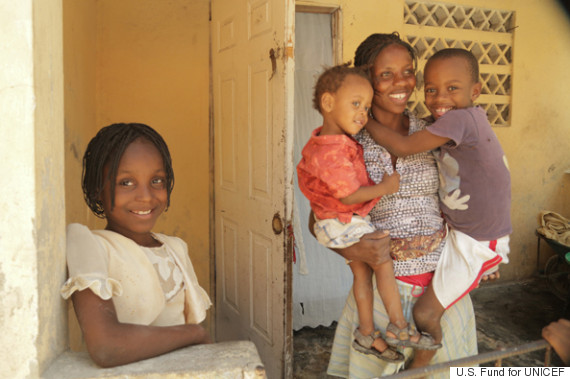
Mitchialine lives with her aunt and cousins. She is healthy and happy and surrounded by family.
I think about Mitchialine, and Fuad, and Denis and Wycliff, and all the other children like them who have struggled, but who have also benefited in one way or another from the work that we do. And I think about how many others we have yet to reach. We can reach them. We must. Because all children deserve a childhood, and to dream big dreams. Let's make the world a place where their dreams can come true.
All photos courtesy of U.S. Fund for UNICEF.
You share, they give: Each time you 'like' or share this post via the social media icons on this post or comment below, Johnson & Johnson will donate $1 (per action) up to $300,000, to improve the health and wellbeing of moms and kids worldwide through MAMA, Shot@Life, U.S. Fund for UNICEF and Girl Up. $1 means one healthy birth in Ethiopia through UNICEF.
You can also use the Donate A Photo* app and Johnson & Johnson will donate $1 when you upload a photo for Girl Up or UNICEF, up to $100,000. You can help make a difference in seconds with the click of your mouse or snap of your smart phone.
Share this post with the hashtag #GlobalMoms, and visit GlobalMomsRelay.org to learn more. The United Nations Foundation, Johnson & Johnson, BabyCenter and The Huffington Post created the Global Moms Relay with a goal of improving the lives of women and children around the globe.
* via the Donate A Photo app for iOS and Android. Johnson & Johnson has curated a list of trusted causes, and you can donate a photo to one cause, once a day. Each cause will appear in the app until it reaches its goal, or the donation period ends. If the goal isn't reached, the cause will still get a minimum donation.